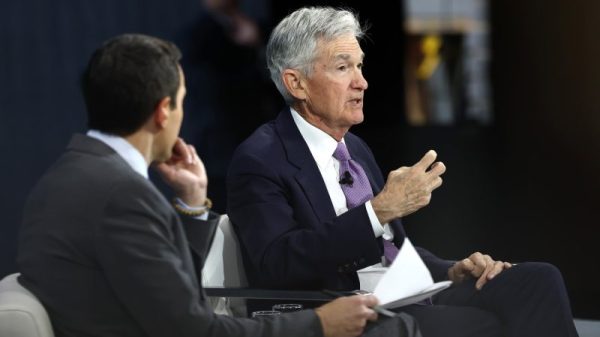Wednesday’s inflation report showed consumer price growth continues to drift higher.
The Bureau of Labor Statistics reported price growth accelerated to 3.5% in March, from 3.2% in February.
Few categories had as big a jump year on year than auto insurance, which soared 22% from March 2023, the most significant year-on-year jump in that category since 1976.
And over the last few years, average auto insurance rates have surged 43%.
As of April, the national average cost of car insurance is $2,314 per year for full coverage and $644 per year for the bare minimum, according to Bankrate.
That works out to about $193 a month for full coverage and $54 for minimum coverage.
A host of factors determine how much insurance companies charge drivers, but the cost of nearly all of them seem to be increasing.
One major factor is simply the rising cost of modern vehicles themselves. Today, a new vehicle costs about $10,000 more than it did before the pandemic. Blame supply-chain issues that drove up the cost of vehicle parts, increased labor costs and customer demand, which has naturally pushed prices upward.
The increasing sophistication of the technology in today’s vehicles also contributes to rising costs, said Robert Passmore, department vice president of personal lines at American Property Casualty Insurance Association. Cameras and sensors, which are used for various driver-assistance technologies, like emergency braking, automated parking and blind-spot monitoring, require parts that are more expensive to replace. They’re also subject to higher labor costs, Passmore said.
More complex and expensive repairs are also taking longer, and that shows up as higher vehicle costs, Passmore said. And worker shortages have resulted in higher pay for technicians.
Meanwhile, the higher cost of buying a vehicle has prompted some drivers to hold on to their existing cars for longer. As a vehicle ages, the likelihood of breakdowns rises, increasing the demand for repair services, said Sarah House, managing director and senior economist at Wells Fargo.
“Insurers are trying to recoup very costly claims,” House said.
Other factors are at work, too. According to the Insurance Information Institute, which represents insurance companies and the insurance industry, the severity of claims, including the medical and litigation costs that arise in claim disputes, are also on the rise.
In the years immediately after the outset of the Covid-19 pandemic, insurance companies took large losses — due in part to an increase in bad driver behaviors. As a result, they have pushed state regulators, who determine how high rates can go, to allow them to charge higher premiums while, in some cases, threatening to leave states entirely if they don’t. According to S&P Global Market Intelligence, those companies have been able to win huge rate increases as a result.
The bad news is there is no end in sight to the cost pressures.
Insurance companies filed for rate increases throughout the end of 2023 and at the start of this year, Bankrate analyst Shannon Martin said in an email. Because such rate changes hit auto policies only upon renewal, U.S. drivers are just starting to feel the impact, Martin said.
“Car insurance inflation is sticky, and while inflation has slowed down and supply chain issues are improving, the premium increases we are seeing and will continue to see in 2024 are based on losses carriers experienced over the last few years,’ Martin said.
‘The ultimate goal is for rates in the insurance industry to stabilize, but that might not happen until sometime next year.”


































